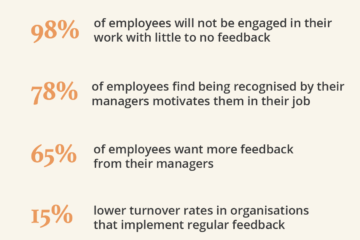Do We Learn Enough About Our Team Members by Conducting Performance Reviews Once per Year?
Published by admin on

Do We Learn Enough About Our Team Members by Conducting Performance Reviews Once per Year?
When leaders evaluate performance, they may not always be as impartial as they would hope. Two biases, recency bias and distance bias, often impact the process, leading to skewed perceptions and missed opportunities for growth. As leaders and managers, it’s crucial to recognise these biases and implement strategies to reduce their effects.
Recency bias, the tendency to prioritise the most recent events or actions in our memory, can significantly distort performance reviews. When conducting annual reviews, managers may inadvertently give undue weight to the employee’s most recent achievements or setbacks. This narrow focus can overshadow months of consistent effort or improvement, leading to a skewed understanding of the employee’s true capabilities.
Similarly, distance bias influences our perception of importance based on proximity. In the context of performance reviews, this bias may cause managers to place greater emphasis on events closer to them in time. Consequently, employees who have had more recent interactions with their managers may receive more attention and consideration during evaluations.
To address these biases and foster a more comprehensive understanding of employee performance, leaders can adopt a more proactive and continuous approach to feedback and evaluation. Rather than relying solely on annual reviews, leaders should strive to maintain consistent communication and tracking of employee progress throughout the year.
Regular feedback sessions provide valuable opportunities for both parties to exchange insights, address concerns, and set clear goals for the future. By maintaining ongoing dialogue, managers can gain a deeper understanding of each team member’s strengths, challenges, and growth potential.
Consistent tracking of performance metrics and milestones allows leaders to maintain a holistic view of employee progress over time. By documenting achievements, challenges, and areas for improvement throughout the year, managers can ensure that their assessments are based on a comprehensive and balanced perspective.

Sources:
Cecchi-Dimeglio, P. (2022, July 12). 6 Ways to Make Performance Reviews More Fair. Harvard Business Review. https://hbr.org/2022/07/6-ways-to- make-performance-reviews-more-fair#:~:text=Recency%20bias%20affects%20employees%20and
Jones, B., Smith, K., & Rock, D. (2018, June 20). 3 Biases That Hijack Performance Reviews, and How to Address Them. Harvard Business Review. https://hbr.org/2018/06/3-biases-that-hijack-performance-reviews-and-how-to-address-them
Want to learn more about Eclipse?



0 Comments